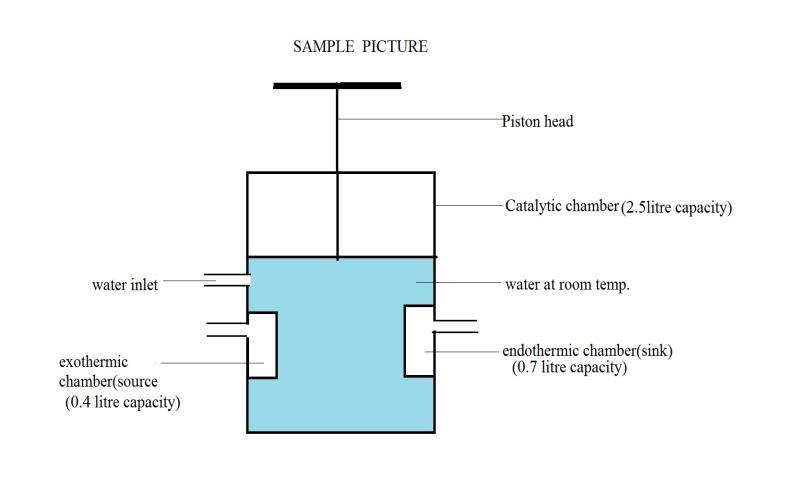Engineer an engine. Sounds simple right? Simple, alas, does not mean easy. In this event, participants have to think of creative and innovative ideas to model the design of a heat engine. While existing models of engines have set the standard, the event tests and pushes the participants’ limits and how well they are able to think outside the box. However, this has to be done keeping in mind the economical and functional aspects of the heat engine as well.
The deadline for abstract submission has been extended till 24th February 2017.
CASH PRIZE - INR 25000
Schedule: 9 am to 5 pm -- March 3, 2017.
There will be 2 rounds of this event, as follows:
Round 1: Abstract Submission(Online).
All the abstracts should be sent to deltat@pragyan.org on or before 24th February 2017.
The format for abstract submission can be downloaded from here.
Round 2:
Final testing of the working models to be done on the actual day of the event. Participants will have to choose from endothermic and exothermic reactions, and their heat engines will be put to the test using their choice of reactions and chemicals.

Sample reactions
Fe+2HCl à FeCl2+H2, H=-89.12KJ/mol
T=25.25/mol of products
Cacl2+H2O à 2CaO+4HCl, H=-128.35KJ/mol
T=40.9/mol of products
H2O+NH4NO3 à NH4OH+HNO3,
H=+86.73KJ/mol
2NH4Cl+Ba(OH)2.8H2O à 2NH3+BaCl2+10H2O
H=+164KJ/mol
Innovation of the design and construction of the heat engine.
Suitability of the material of construction, used for designing the heat engine.
The economic considerations of the design of the heat engine.
Difference in height of the piston before and after the reaction.
The chemistry knowledge (based on the reactions chosen from the list).
Tie Breaker: The heat lost to the surroundings will be taken into account, and the team with the least heat lost to the surroundings will be the winner.
Maximum of 3 people per team.
The capacity of chambers should be 2.5 litres - water, 0.4 litres - exothermic, 0.7 litres - endothermic.
Quantity of water used should be 750 ml.
Weight of the piston used in the heat engine must be 1.5 kg.
Maximum allowable pouring time of the chemicals is 30 seconds.
Participants must use only the chemicals provided by Pragyan, and they are not allowed to bring/use any chemicals of their own.
During the process, there should be no direct addition of chemicals.
Participants are not allowed to interfere with the demonstrations of the other groups. Doing so will result in immediate disqualification.
Participants are only given one try for their demonstration of the heat engine. In the case of malfunction or any mistakes, the judges will review the situation and may/may not give the participants another chance.
The judges’ decision will be final.
1. Is it maximum of 3 people or strictly a team of 3?
It’s a maximum of 3, but no special credit for teams with lesser participants.
2. Are UG-PG collaboration teams and cross college teams allowed?
Yes.
http://hyperphysics.phy-astr.gsu.edu/hbase/thermo/heaeng.html
http://farside.ph.utexas.edu/teaching/sm1/lectures/node57.html
Design and fabricate an innovative heat engine.
Ritik Verma : 77860 72543
Muni Kumar : 97904 79642
Nishanjan Ravin : 90032 99824
Email us at deltat@pragyan.org